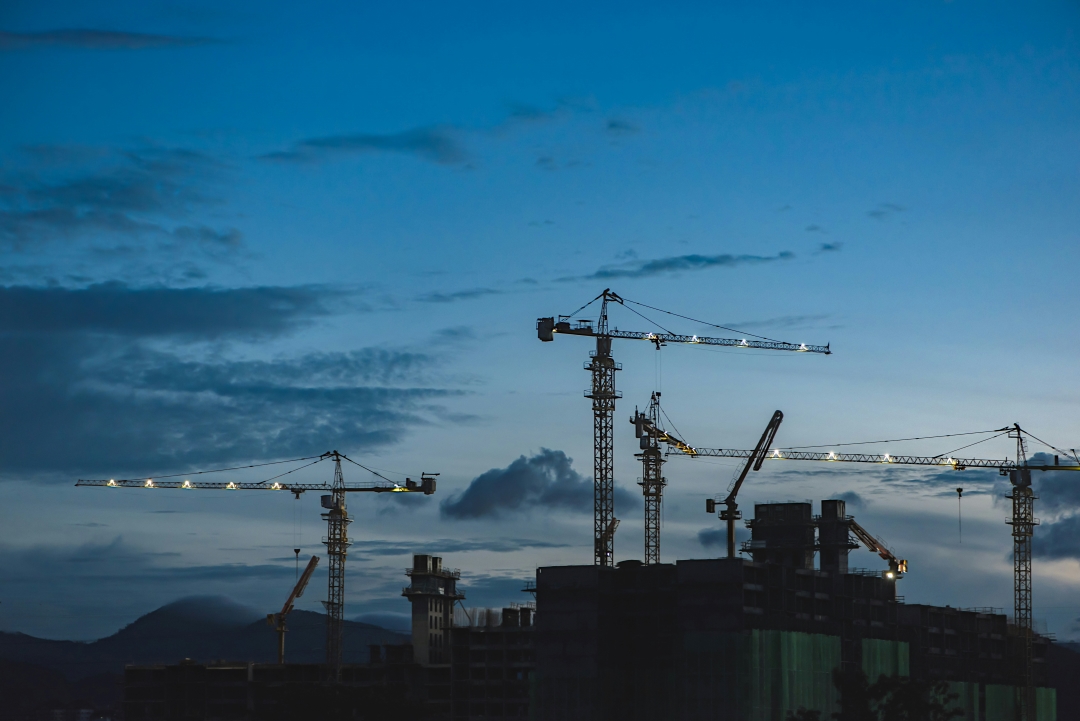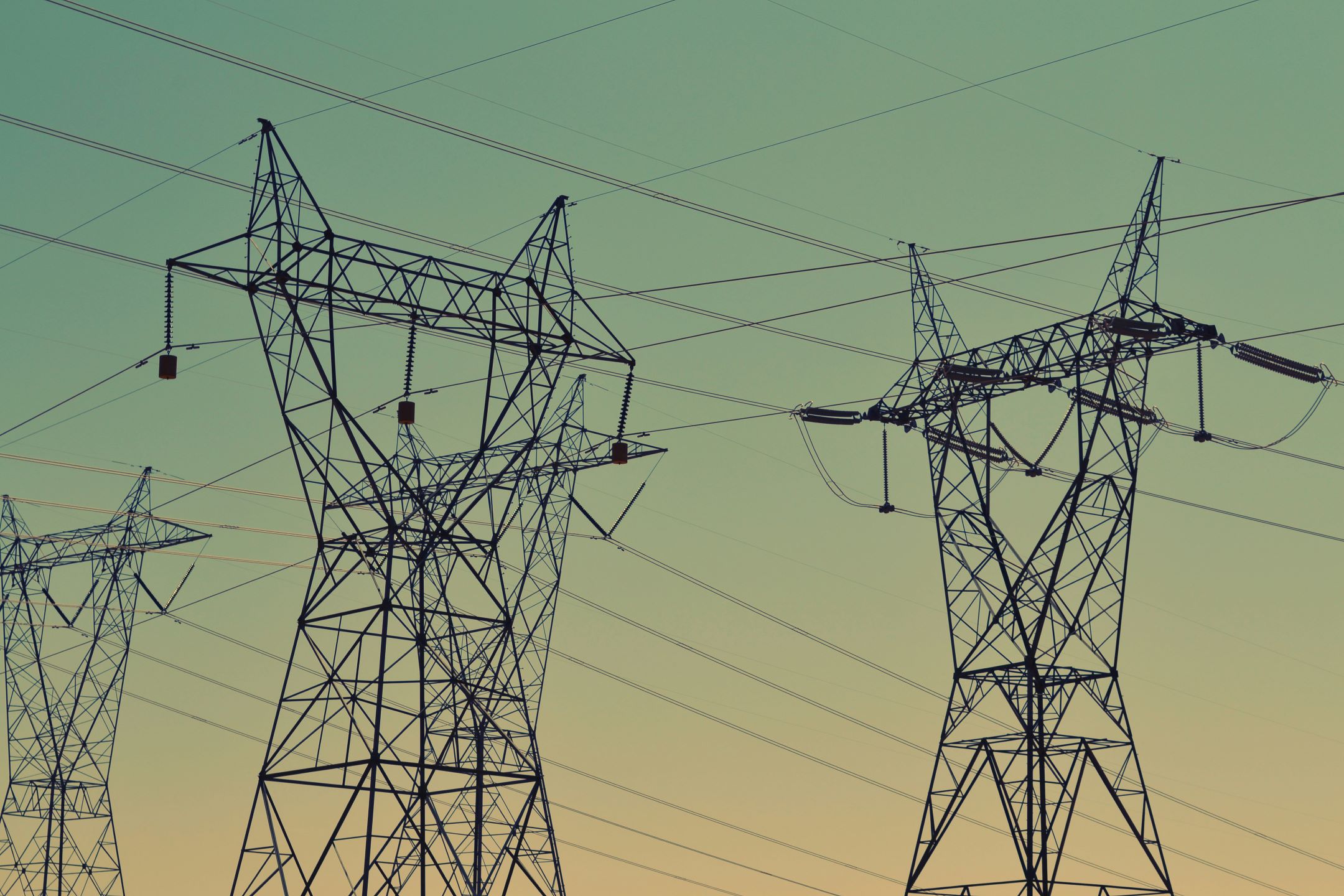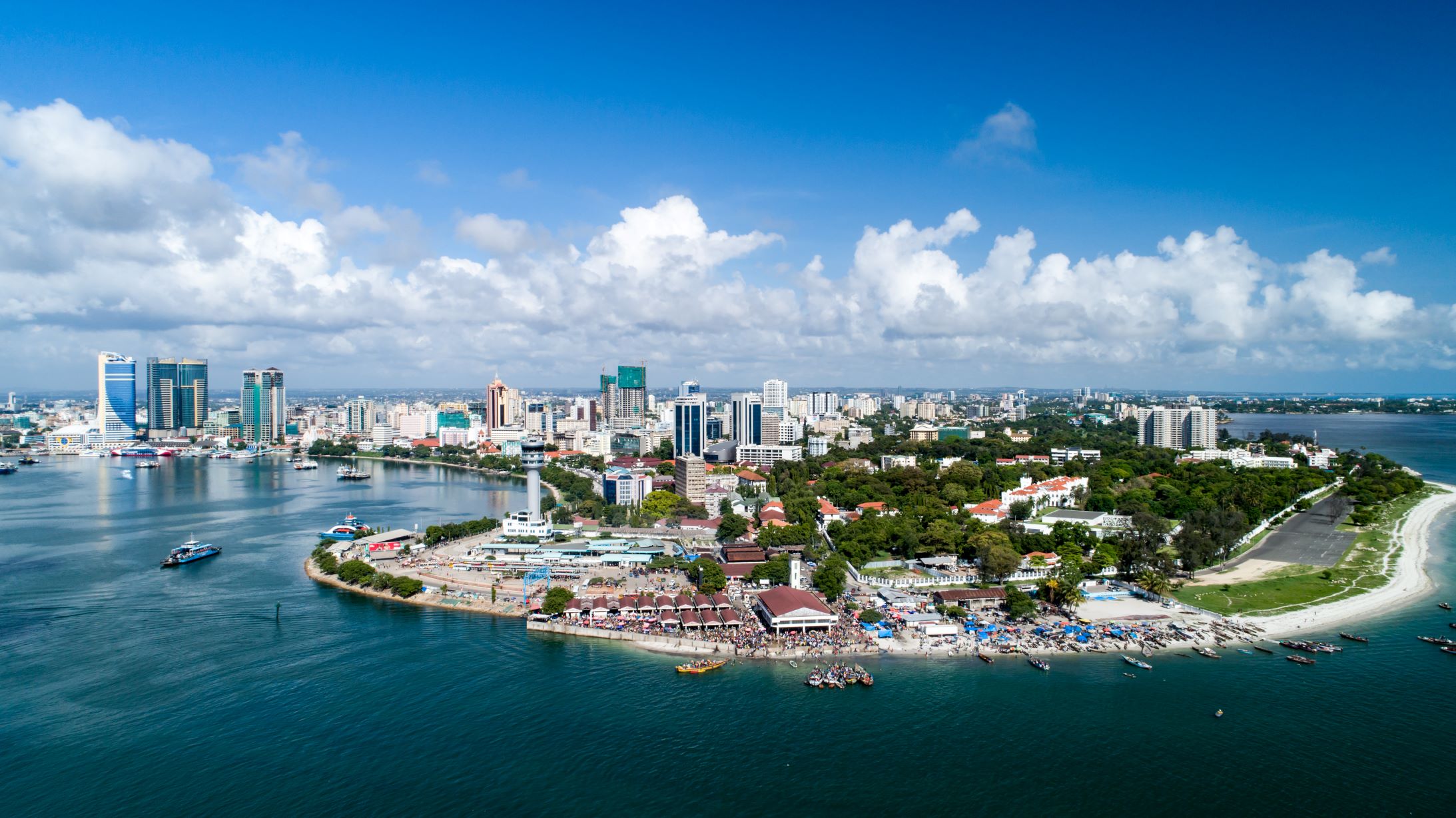Africa
Africa Seeks Bigger US Trade Slice for AGOA to Make Sense
African countries may need more trade privileges with the US even as Washington reviews the African Growth and Opportunity Act (AGOA) meant to expand what the continent will export. At the end of the US-Africa summit in December, Washington pledged to renew AGOA, bringing clarity to uncertainties that had befallen exporters from countries such as Kenya. But now experts say the narrow view of AGOA should be expanded to allow them to export more goods and hence benefit more countries that can make a diversified list of goods. “AGOA has to be expanded in two ways; expanded in its product coverage and in terms of country coverage,” said Melaku Desta, Coordinator of the African Trade Policy Centre, UN Economic Commission for Africa. “AGOA also excludes processed products as Africa is allowed to export Iron and ore but not steel products. So, it has to be expanded in terms of product coverage. It also has to be expanded in terms of country coverage.” The US Congress first passed AGOA’s legislation in 2000. It expires in 2025, having been extended four times before. Initially, it was meant to last until 2007 but was amended to clarify on preferential treatment of African goods and other standards required of goods.
Source: The EastAfrican
East Africa
EAC to Set Up Regional Central Bank in 2023
A decision to set up the East African Monetary Institute (EAMI) – the Central Bank of East Africa—will be made this year, a key establishment required in implementing a single currency regime. EAC Secretary-General Dr Peter Mathuki said the Council of Ministers is expected to plan on the location of the EAMI this year. Over the recent past, member states have been jostling to host the EAMI, each angling to avail themselves of the massive potential to attract foreign capital and become the region’s financial hub. “The EAMI will be in place this year to allow us to harmonise member states’ fiscal and monetary policies, then in about three years we will have a common currency in place,” he told journalists. The single currency will ease business and movement of persons within the region, achieving the bloc’s goal of becoming as envisioned in the Common Market Protocol. The EAC has a collective population of 300 million, with investors from across the world standing to gain from the market and, by extension, have access to the entire continent’s population.
Source: The Citizen
Algeria
Algeria to Invest More than USD 30 Billion in Oil Exploration, Production
Sonatrach intends to invest more than USD 30 billion in the exploration and production of hydrocarbons, particularly natural gas, to improve the supply of the world market, said the group’s CEO, Toufik Hakkar. “As part of Sonatrach’s five-year investment plan (2023-2027), the order of USD 40 billion, more than USD 30 billion will be allocated to exploration and production with the increasing production in the short and medium term and preparing a portfolio of future projects, for the natural gas in particular,” Hakkar added. “These investments will help improve energy security and reliably supply the global market,” according to Algeria Press Service (APS). Sonatrach also plans to invest more than USD 7 billion in refining, petrochemical and gas liquefaction projects, which will promote value-added creation in Algeria and strengthen export potential. Nearly USD 1 billion will be devoted to projects aimed at the company’s contribution to the energy transition.
Source: Arabian Gulf Business Insight
Egypt
A Significant New Natural Gas Discovery Offshore Egypt
The Italian company, Eni, recently announced a new gas discovery at the Nargis-1 exploration well located in Nargis Offshore Area Concession, in the Eastern Mediterranean Sea, offshore Egypt. The company stated that the Nargis-1 well has encountered approximately 200 net feet (61 metres) of Miocene and Oligocene gas-bearing sandstones and was drilled in 1,014 feet (309 metres) of water by the Stena Forth drillship. The discovery can be developed leveraging the proximity to Eni’s existing facilities. The data announced by the company stated that the Nargis-1 confirms the validity of Eni’s focus on Egypt Offshore, which the company will further develop thanks to the recent award of exploration blocks North Rafah, North El Fayrouz, North East El Arish, Tiba and Bellatrix-Seti East. Egypt’s Nargis Offshore Area concession is 445,000 acres (1,800 square kilometres). Chevron is the operator with a 45 percent interest, while Eni’s wholly owned affiliate IEOC Production BV holds a 45 percent and Tharwa Petroleum Company SAE holds a 10 percent interest.
Source: Egypt Today
Kenya / Tanzania
Kenya and Tanzania Resolve 23 Trade Barriers after Samia Visit
A government paper shows that Kenya and Tanzania resolved 23 restrictive regulations that had impeded trade between the two countries, following President Samia Suluhu Hassan’s Nairobi visit in May 2021. A new government paper shows that Kenya had initially targeted to resolve about seven non-tariff barriers (NTBs) — restrictive regulations, including licences, quotas, embargoes, foreign exchange restrictions, and import deposits — in the financial year 2021/22, but this jumped to 31, reflecting a warm relationship between the two countries. The drop in the number of these trade barriers, which pushed the cumulative NTBs resolved and eliminated to 256 by the end of June last year, came moments after the visit to Kenya by President Suluhu, who had just replaced the late John Pombe Magufuli. Dr Magufuli’s protectionist policies had occasionally flared up in a diplomatic spat between Nairobi and Dar es Salaam. “The over achievement was as a result of collaborations between Kenya and the United Republic of Tanzania to resolve NTBs to create market access,” reads part of the Report for General Economic and Commercial Affairs Sector, a sector working group for the budget preparation, which also includes the Treasury.
Source: Business Daily
Morocco
Major Rail Maroc Project Seeks USD 38 Billion Investment
Minister of Transport and Logistics Mohamed Abdeljalil provided insight into the funding required for the Rail Maroc project, noting that the budget is set at MAD 400 billion (USD 38 billion). The project strives to find innovative financing solutions to mobilise the large-scale network that will carry high-speed TGV trains, reported the Moroccan news outlet Telquel. The new railway consists of over 3,800 kilometres of medium-speed and over 1,300 high-speed tracks. It will run between Tangier to Agadir and Oujda to Rabat. Minister Adeljalil confirmed that the new network was aiming to expand the current connection of 23 Moroccan cities to 43. Through the expansion, 87 percent of Morocco’s population will have access to rail transportation. Currently, only 51 percent of Moroccans have access to rail networks, meaning this project could make a substantial difference to the country’s transport system.
Source: Morocco World News
Nigeria
Federal Government Scouts for USD 1.22 Trillion in Ambitious Move to Generate 178,000MW
With a massive energy deficit, the highest in the world according to statistics, the federal government of Nigeria is contemplating a renewable energy plan (REmap) that would generate 178,000 MW in its bid to overhaul Nigeria’s energy architecture. To achieve the ambitious energy plan, the FG is scouting for investors to raise USD 1.22 trillion to shift its energy sources to renewable, with a projected 178,000 Megawatts of electricity over the next 27 years. Minister of Science, Technology and Innovation, Adeleke Mamora, dropped a hint while launching the ambitious plan at the 13th International Renewable Energy Agency (IRENA) Assembly held in Abu Dhabi, United Arab Emirates (UAE). While renewable energy generation in the country is currently around 1,000 MW, the Federal Government and its partners, especially International Renewable Energy Agency (IRENA), are pitching to global investors the ambitious plan aimed at ending energy poverty, addressing climate change and aiding Nigeria in achieving Paris Agreement projections as well as the Sustainable Development Goals.
Source: The Guardian
Rwanda
Rwanda Elected for Presidency of Global Renewable Energy Body
Rwanda has been elected for the 14th Assembly Presidency of the International Renewable Energy Agency (IRENA), slated for January 2024. The Assembly is the supreme organ of IRENA, consisting of all 168 members. This means that Rwanda will oversee its proceedings and be the champion of energy dialogue throughout 2024. Speaking during the 13th Assembly meetings held in Abu Dhabi from January 14 to 15, Emmanuel Hategeka, Rwandan Ambassador to the United Arab Emirates, accepted the responsibility and said Rwanda remains committed to different initiatives within the framework of global climate action and targets. “Rwanda believes that renewable energy is part and parcel of sustainable transformation. This is anchored in the national vision of becoming a green, climate-resilient, and low-carbon economy by 2050,” he said. The country aims to achieve universal access to electricity by 2024, with renewable energy constituting 60 percent of the energy mix. According to him, “the current cumulative access to electricity is 75.3 percent, of which renewables have a share of 50.7 percent.”
Source: The New Times
Reports
World Economic Forum | Global Cybersecurity Outlook 2023
Hearing is different from listening. This aptly characterises the relationship between cyber and business leaders in many organisations, according to research for the 2023 Global Cybersecurity Outlook study. The significance of cyber risk has certainly been heard in C-suites and boardrooms. Whether cyber leaders and business leaders understand each other well enough to meet this challenge is, on the other hand, an open question. Overall, the study indicates that business leaders are more aware of their organisations’ cyber issues than they were a year ago. They are also more willing to address those risks. Nonetheless, cyber leaders still struggle to clearly articulate the risk that cyber issues pose to their organisations in a language their business counterparts fully understand and can act upon. As a result, agreeing on how best to address cyber risk remains a challenge for organisational leaders. The 2023 Global Cybersecurity Outlook report presents the results from this year’s study of cybersecurity and business leaders’ perspectives on leading cyber issues. It examines how they affect organisations around the world.
Click here to read and download the report.
World Economic Forum | Securing the Energy Transition
Energy security is one of the key pillars of energy system performance, a primary concern for governments and economic players across the globe, and a dimension whose impacts multiply across supply chains, countries and international systems. People, companies and nations depend on affordable and uninterrupted energy access. Yet, we are in the middle of an unprecedented energy crisis, afflicting countries worldwide with cascading macroeconomic implications. The challenges underpinning today’s energy context are so complex and interconnected that they can only be resolved with structural solutions. Relying on short-term fixes will potentially hamper the transition to a sustainable, clean and affordable energy system. This is something the world cannot afford. However, this energy crisis also provides an opportunity for countries to redesign their approach to energy security, in light of advancing technologies and a changing fuel landscape. This report aims to understand how energy security has evolved amid the current crisis and against the backdrop of the ongoing energy transition. It reflects on the long-term sustainability of deployed measures and proposes ten ways to align immediate interventions with the long-term energy transition. It also proposes a structured framework to balance energy security as part of the effective energy transition.
Click here to read and download the report.
World Economic Forum | AfCFTA: A New Era for Global Business and Investment in Africa
Officially launched in 2021, the African Continental Free Trade Area (AfCFTA) creates a single market projected to grow to 1.7 billion people and USD 6.7 trillion in consumer and business spending by 2030. The preferential trade agreement will increase international exports and intra-African trade, unlocking tremendous opportunities for local and global businesses to enter and expand throughout new markets across the continent. Four sectors – automotive; agriculture and agro-processing; pharmaceuticals; and transport and logistics – were identified by the AfCFTA as important business areas due to their potential for meeting local demand with local production. To better understand the business opportunities, operational tools and possible strategies for success in using the AfCFTA, this insight report offers a systematic analysis of the important trends and opportunities and an investigation into some illustrative examples of success in each sector. It builds on macro trends in the region as well as insights from Landry Signé’s book Unlocking Africa’s Business Potential, the AfCFTA Secretariat, the World Economic Forum and case studies from companies currently operating in Africa to explore how the private sector can seize the opportunities of the AfCFTA for the mutual benefit of businesses and African economies.
Click here to read and download the report.
Briter Bridge | Africa Investment Report 2022
Investment distribution across Africa is far from even. Historically, Nigeria, Kenya, South Africa and Egypt have captured the lion’s share of funding. In 2022, three out of the four deals went to companies active in one of these four countries, with the rest of the 50 countries sharing the remaining slice. Over the past few years, however, a second tier has begun to emerge. These are Ghana, Uganda, Tanzania, Cote d’Ivoire and Tunisia. This upward growth for this tier has been due to steady growth in Africa’s digital, tech and green ecosystems, dating back to the mid-to-late 2000s. In this sense, the continent’s steady growth shows that the world’s eyes are looking at Africa as an increasingly viable investment destination. There are now more actors investing capital and building successful businesses than there were. Africa is but at the starting grid. While the focus shifts towards ensuring strong unit economics and financial sustainability, it is also key to think about what can harm the ecosystem and its actors in the long run.


